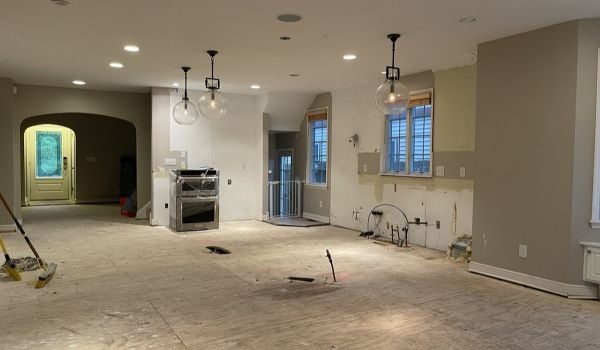The Department of Housing and Urban Development released a housing report on the city of New Orleans the other day. The last study of this kind was conducted in 2004, providing stark contrast between pre- and post-Katrina New Orleans. The findings about the rental market are counterintuitive — at least initially — in the worst way. In 2004, the median monthly housing cost was $662; now, five years after Katrina, it has risen 33% to $882. And these numbers have been adjusted for inflation.
The HUD report attributes this rise in price to a loss in “mid-priced” rental units. According to the Times-Picayune, it was not uncommon for families to pay about $300 a month for an apartment before Katrina, but now, “That’s long gone”. If one doesn’t think very hard, it seems bizarre that rents should go up in a still disaster-ravaged city — the report estimates there are 72,500 vacant housing units in New Orleans. But this blight translates into scarcity, and scarcity into demand. According to the report, the number of mid-priced rental units in the city went from 66,300 in 2004 all the way down to 19,300 in 2009 — less than one-third its previous level. The rental market, among other things, was decimated by the storm.
Owner-occupied housing has fared better since the storm. Of a quarter million owner-occupied housing units that were damaged in the storm, HUD reports that a full 90% have had repairs funded through either private insurance claims, federal insurance, or Louisiana’s HUD-funded Road Home Program, which provided up to $150,000 for homeowners whose homes were damaged in Katrina. Though, only about half of those homes have been reoccupied, and only one quarter of the homes more severely damaged have been reoccupied.
Public and subsidized housing have done well, too. HUD helped fund privately-owned affordable housing developments, which have created 8,400 new units of affordable housing in the city since 2005. According to HUD, that means that there is more federally assisted housing in New Orleans than there was before Katrina. It seems the federal government is doing its best to make up for the shortcomings of the response to the disaster as it happened. But what about the rental market?
Rental markets are very important to a functioning, prosperous city. To paraphrase and extrapolate from a Richard Florida argument — a very smart man we occasionally disagree with here on Urban Nation — cities with more fluid rental markets can attract more mobile, better-educated young people (Florida’s ‘Creative Class’) than cities dominated by homeowners, and public housing. It’s a very important part of the ‘metabolism’ of a city; bringing in new people, ideas, capital, etc. Affordable rentals are the lifeblood of any city, and in a city as thoroughly damaged as New Orleans, it seems even more important to have new people, new ideas, and new businesses coming in.
So while the federal government’s response to the destruction of New Orleans’ housing stock has been effective over the last five years, at least in restoring owner-occupied housing and public housing, there is still plenty of work to be done. And for New Orleans to really recover, the rental market will have to rebound.

_600_350_80_s_c1.jpg)













